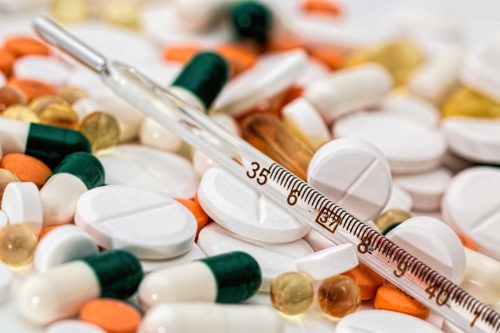For many, many people across the globe, chemical dependency is an incredibly challenging obstacle standing in the way of leading a fulfilling life. Here in the Seattle area, we are seeing the increased devastation and pervasive effect that the opiate crisis is having on tens of thousands of our neighbors.
 But how has this problem become so large, especially amongst young adults? These are the generations that grew up with programs like D.A.R.E. and education about drugs and alcohol provided in school, yet on the whole, we haven’t seen any societal shifts towards reducing the number of people suffering from addiction.
But how has this problem become so large, especially amongst young adults? These are the generations that grew up with programs like D.A.R.E. and education about drugs and alcohol provided in school, yet on the whole, we haven’t seen any societal shifts towards reducing the number of people suffering from addiction.
For those suffering from addiction, it can feel like a weight holding you back from achieving your goals. It’s like being in a boat, heading the direction you want to go, but there’s an anchor holding you down.
It might have been at first comforting to be in port. It kept you from the rocky seas and troubles that could be out there. However, as you look around, you see that the dock is catching fire, and even though you can see the devastation happening, you are now unable to leave. That anchor is heavy and it keeps tugging and pulling you back to the same place. You see the danger in staying, but it feels almost impossible to pull yourself away.
Dealing with chemical dependency is similar. Perhaps the drugs or alcohol started out as a social event, but now you can’t go a day without them. Every day becomes a task of maintaining that high or getting that drink so that you can get through the next 24 hours. Yet as you do so, you’re noticing family and friends slipping away.
Perhaps the friends you have now are not who you want to be around. But you’re still too dependent on the chemical to give it up. “How can I ever move on from this?” you may ask yourself. While not an easy task, there is hope! Moving on from chemical dependency can help you to feel better about yourself and achieve to your full potential. First, let us look at some models with which people have tried to explain chemical dependency.
Models of Chemical Dependency
One of the earlier and most long-standing models of chemical dependency is the “Moral Model.” This view sees chemical dependency as a moral issue. The implication is that if you are addicted to drugs or alcohol, then you are a bad person who needs to get their life right (I do not subscribe to this model at all but let me explain it just a little further).
This model views substance abuse as a moral failing, and it generally states that you need to seek only spiritual help followed by a tremendous amount of personal effort. It is between you and God, so only God can help you.
I view this model to be both ineffective and harmful. As we will see, there is tremendous evidence that addiction is both a disease and indicative of other issues. Addiction through the moral model implies that you are a bad person. The problem with this, then, is that if you are a “bad person” you have no capacity to change.
Rather, I like to think of people as having the capacity to change and not doomed to be “bad people.” Further, it implies that you are only a victim of your own choices and downplays the effects genetics and culture has on us.
 Culture often pulls from this model, talking down to addicts as people who are less than others, rather than as those who are struggling. This tears down the individual and gives a pass on responsibility to society as a whole. My personal belief is that this model breeds more addiction than it helps to cure.
Culture often pulls from this model, talking down to addicts as people who are less than others, rather than as those who are struggling. This tears down the individual and gives a pass on responsibility to society as a whole. My personal belief is that this model breeds more addiction than it helps to cure.
Another model of addiction is the medical/disease model. This model states that chemical dependency and substance abuse is a disease. There exists substantial evidence that we have genetic predispositions towards addiction.
This view sees individuals who have a genetic load for addiction as sort of tinderboxes waiting for a spark of a chemical to light the fire. I appreciate that this approach takes the morality out of addiction and sees people as suffering from a disease rather than continually making poor decisions. This model would seek to treat addiction with substance abuse counseling and, depending on the specific substance, substitutions for the addiction (such as methadone or suboxone for opiate addiction).
However, I believe this model falls short in some ways. For some, it can create a sense of helplessness or, at the extreme, a permission to continue to use. If you suffer from a disease, there is not much you can do on your own to help your own cause. So while I do view it as a disease, the language around chemical dependency here can neuter an individual’s drive to seek sobriety.
Further, this view is too one-directional in my book. I had a professor in college use this phrase time and time again: “genes load the gun, but your environment pulls the trigger.” This model puts a lot of emphasis on the causality of chemical addiction existing in your genes and doesn’t address greater relational aspects that can impact addiction.
How I View Chemical Dependency
Rather than the addiction or moral model, I tend to subscribe to a model of addiction that sees substances as playing a role in your life and as an attachment object. For almost every person I have worked with suffering from addiction, there were other things going wrong in their life that they can point to.
Maybe it was a recent breakup, feeling disconnected from their friends and family, depression, or anxiety. A lot of different stresses can cause people to first start using drugs. Substances are an effective way of coping with emotional pain. However, when the substance goes away the pain is still there.
 I once had a client say it best, he said: “I am trying to create a life worth living sober.” This implies that prior to pursuing sobriety, life had not been great for him. His process of recovery had him creating connections with other people and seeking out new activities to fill his time. Had he achieved sobriety but changed nothing else, he would have been quite bored, lonely, and depressed – a perfect trifecta for falling back into substance abuse.
I once had a client say it best, he said: “I am trying to create a life worth living sober.” This implies that prior to pursuing sobriety, life had not been great for him. His process of recovery had him creating connections with other people and seeking out new activities to fill his time. Had he achieved sobriety but changed nothing else, he would have been quite bored, lonely, and depressed – a perfect trifecta for falling back into substance abuse.
At this point, take a look at this 6-minute video that explains this concept a little further: https://www.youtube.com/watch?v=ao8L-0nSYzg
This video looks at substances as something we attach to when we are lonely and isolated. Culture is moving more and more towards detachment from each other in favor of the virtual world, where we can portray an idealized and fictional version of ourselves. This means that our genuine self is less known, and more and more people find themselves feeling lonely, even if they have the social connection online.
Working from this understanding, substances fill that role of something to connect with. If you find yourself doing well for a short time and then slipping back into addictions, again and again, chances are there is not much going on for you worth being sober for!
In this model, I would help you to find areas to connect and grow yourself. For some, places like alcoholics anonymous or narcotics anonymous provide the relationships and structure to help with sobriety. However, this is not always a good fit for everyone.
For some, it will mean finding hobbies and activities to pour yourself into. In therapy, we will work to address underlying mental health issues as well. For you that could be depression, anxiety, an eating disorder, paranoia, or anything else. If you feel better in your own headspace, dealing with addiction will be that much easier as well.
Ways to Find a Connection
Trying to fight addiction can feel like pushing back the waves. They keep pouring in and try as you might to put up a wall with your arms, they will always keep coming back. To protect an area, you will have to put up walls and then fill that with something, or else the waves will continually fill that void.
In the same way, something will have to replace the drugs, simply eliminating them is not usually sustainable. I propose that finding connections is one of the most effective ways to fight addiction we have at our disposal.
 With all issues, I try to look at them holistically. We are biological, psychological, social, and spiritual beings, so things like chemical dependency treatments should address all of these realms. Biologically, many drugs and alcohol create a dependence. Going cold turkey is often not feasible and can in some extreme circumstances be damaging, or even lethal, to your health. As such, tapering is sometimes necessary for the process of quitting a substance.
With all issues, I try to look at them holistically. We are biological, psychological, social, and spiritual beings, so things like chemical dependency treatments should address all of these realms. Biologically, many drugs and alcohol create a dependence. Going cold turkey is often not feasible and can in some extreme circumstances be damaging, or even lethal, to your health. As such, tapering is sometimes necessary for the process of quitting a substance.
Doctors can sometimes prescribe something to help wean you off of the substance or provide something to help with the withdrawal symptoms. This process is often a major hurdle that prevents many from getting to sobriety. However, this is just one realm which leads to truly dealing with chemical dependency. Once off the substance, you will need to address your psychological, social, and spiritual needs.
From the psychological perspective, getting into drug counseling or mental health therapy can be incredibly helpful in this process. Therapists can provide you with both support and advice on the road to recovery. There will be difficult days, weeks, or months that you will need someone to vent and cry to.
Therapists can provide the loving support you need to get through the tough times. Further, as mentioned before there are often underlying psychological issues that a therapist can help you process that previously the drugs or alcohol had helped with.
Spiritually, finding a connection with God can be incredibly fulfilling and helpful in your sobriety process. Perhaps you’ve always felt God is there but you’ve been distant – leaning on his support can help you in your process as well. Perhaps you feel shame from the addiction and things you may have done while deep in your dependency, experiencing forgiveness can be incredibly healing and allow for you to have a greater sense of self and strength to push on with.
Finally, there is the social aspect that I have already touched on. In creating a life worth living sober, you will need to find the people in your life whom you love and who fill you up. Even if you identify as an introvert, these social connections are invaluable to your recovery process. Find a group to join, such as a sporting group or a hobby group that you enjoy.
Perhaps getting connected to a church can accomplish a spiritual and social connection at the same time. Many people have found the comradery and structure that Alcoholics Anonymous provides to be valuable in their own recovery journey.
Perhaps relationships have been damaged in addiction. Seek to restore those that you can, acknowledging the hurt and pain on both sides. By finding connection and attachment, you will have less of a desire to turn to drugs in order to cope with pain and isolation.
Find the help that you need
Perhaps you are in a place of wanting to get a hold of your chemical dependency issues. If so, then I am so glad you are looking for the help you need! Often the best place to start is to begin therapy. The journey forward may seem murky or daunting, so seek out a therapist or counselor to help you on this process.
Recovery looks different for everyone, so all the online help and suggestions can only get you so far. Start by connecting with a therapist who can help you to create a roadmap to your own recovery. Just by taking the baby step of picking up the phone and calling, you are setting into motion changes that can provide a lasting impact on your life. Don’t hesitate or delay achieving your potential any longer!
“Thermometer on Medical Pills”, Courtesy of Pixabay.com, Pexels.com, CC0 License; “Man in Black”, Courtesy of Min An, Pexels.com, CC0 License; “Bright Dawn”, Courtesy of Helena Lopes, Pexels.com, CC0 License; “Adventure”, Courtesy of Pixabay.com, Pexels.com, CC0 License





